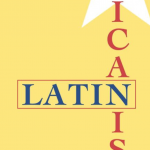2001
Gene Kannenberg, Jr. finds the most well-publicized comic by one of America's most significant cartoonists to be technically accomplished, challenging as narrative but finally all too true to its title: the characters and situations in David Boring are in fact boring.
Mark Hansen responds to Linda Brigham's review of Embodying Technesis: Technology Beyond Writing.
Linda Brigham works through Embodying Technesis by Mark Hansen.
Elizabeth Wall Hinds reviews Andrew Miller's first novel, Ingenious Pain, winner of the James Black Memorial Fiction Prize and the 1999 International IMPAC Dublin Literary Award.
Linda Carroli reviews Michael Joyce on networked culture, whose emergence changes our ideas of change.
For Daniel Punday, Bernard Siegert's historical materialism - a difficult synthesis of historical, literary, and institutional analysis - falls somewhere between Derrida and Foucault. But see also the review in ebr by historian Richard John, who considers Siegert in the line of Walter Ong, Elizabeth Eisenstein, and Harold Innis.
2000
Geoffrey Winthrop-Young takes the outside perspective on German media studies.
Every crank has an idea. Every American is a crank. Philip Wohlstetter is an American, therefore - well, you get the idea.
1999
Laura Dassow Walls reconsiders Consilience and finds E. O. Wilson to be more Christian in outlook than the Reverend William Whewell, who originated the term, 'consilience'
Timothy Melley reviews Mark Fenster on conspiracies in fact and fiction and finds evidence against the assumption that only nonexistent conspiracies produce conspiracy theories.
Luc Herman reviews the collection, Cyberspace Textuality by Marie-Laure Ryan, and warns against the creation of a false dichotomy between the digital and traditional print text.
Bruce Clarke reviews the new translation of Grammophone, Film, Typewriter, a requiem and good-riddance for the era of so-called Man.
Jan van Looy reviews Silvio Gaggi on hypertext fiction up to the early '90s.
Shirin Shenassa situates Roman de la Campa's Latin Americanism within the critical discourses of the world's metropolitan centers and introduces a new thREAD into ebr's Internet Nation series
Joseph Tabbi identifies a shift in U.S. criticism that has taken place in the eight years separating Susan Strehle's Fiction in the Quantum Universe and John Johnston's Information Multiplicity.
Noting that media are not only proposed to readers but also imposed on customers, Jan Baetens introduces Adorno into the debates on remediation.
Linda Brigham reads How We Became Posthuman the way Katherine Hayles reads novels: as a story that resists both linearity and the analytical ardor of attempts at humanist ordering.
Walton Muyumba reviews Randall Kenan's massive meditation on race and introduces a new word into the discourse on African American literature: zugenruhe.
Matt Kirschenbaum reviews Remediation by Richard Grusin and Jay David Bolter.
